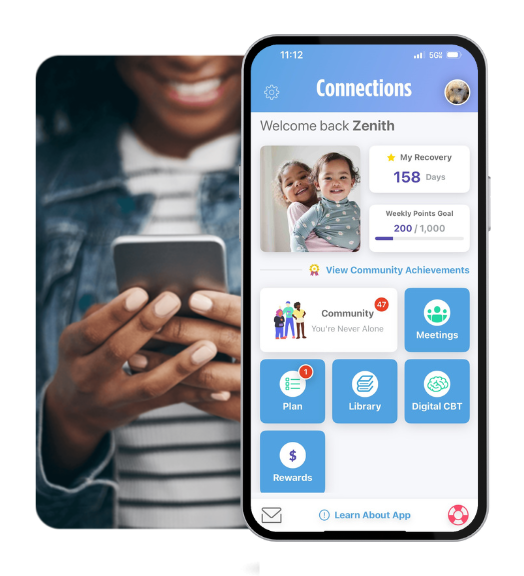North Carolina Recovery Support Solution
The State of North Carolina’s Department of Health and Human Services has partnered with CHESS Health to make an evidence-based recovery support solution, eRecovery, available to the state’s mental health and substance use disorder-focused organizations, including behavioral health providers, Local Managing Entities (LMEs), reentry programs, peer warm lines, crisis line/ helpline services, federally qualified health centers (FQHC), MAT programs, certified community behavioral health centers (CCBHC), recovery coaching organization/peer support organization, collegiate recovery programs, sober living or recovery residences, and harm reduction programs.
This resource is available at no cost.
Are You Eligible?
If you’re interested in learning more about this program, including if you’re eligible to receive this resource, complete and submit the form below.


How Will This Tool Support Your Organization?
Connections serves as an extension of your patient support offering while optimizing growth, improving efficiency, building loyalty, positively impacting patient and staff satisfaction, and advancing health equity. Connections serves as a vital link during transitions in care and between appointments, offering a constant, reliable thread of connection to your patients and clients throughout their recovery journey.
Solution Overview
The state is making the eRecovery solution available to behavioral health entities across the state. Included in this solution is the Connections app, an evidence-based recovery support app. Available in both English and Spanish, this application equips users with coping mechanisms, recovery support tools, virtual group meetings, and discussion forums, while providing a space to share and celebrate achievements. Additionally, providers can promote the use of the Digital CBT module. Lastly, a dedicated team of Peer Support Specialists provides 24/7 moderation of the online community and a support button to ensure patients and clients have crisis support when needed. Subsequently, the Peer Team communicates escalation specifics to providers, ensuring a seamless communication loop and ongoing support for those who experienced a risk moment.
